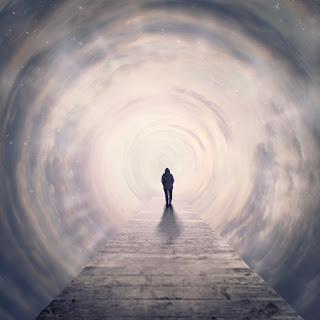Life After Death
Exploring the Mystery: Life After Death
The question of what happens after death has fascinated humanity for millennia. It is a topic that has captivated the imaginations of poets, philosophers, and religious thinkers throughout history. While the concept of life after death is deeply rooted in religious and spiritual traditions, it also sparks curiosity and contemplation among those who approach it from a more secular perspective. Exploring this enigmatic topic opens the door to profound philosophical, existential, and ethical considerations.
Different religious and spiritual beliefs offer diverse perspectives on the nature of life after death. In many faith traditions, the concept of an afterlife is central to their teachings and practices. For instance, in Christianity, the belief in an eternal life in the presence of God is a core tenet. Islam holds the belief in paradise and hell as the destinations for the souls of the deceased. Hinduism embraces the idea of reincarnation, where the soul is reborn in a new body based on its past actions. These beliefs provide solace, hope, and guidance to their respective followers, shaping their moral compass and understanding of the purpose of life.
Beyond religious perspectives, philosophical inquiries into life after death contemplate the nature of consciousness, the soul, and the existence of an immortal essence separate from the physical body. Some philosophical arguments propose that consciousness may persist beyond the physical realm, whether in the form of an individual soul or as a collective universal consciousness. These debates often delve into questions of personal identity and the continuity of consciousness beyond biological death.
Scientifically, the question of life after death is highly debated and remains largely uncharted territory. The scientific method relies on empirical evidence and repeatable experiments, making it difficult to directly explore the metaphysical realm. However, some researchers have conducted studies on near-death experiences (NDEs) and explored accounts of individuals who claim to have encountered a realm beyond death during moments of clinical death. While these experiences provide intriguing anecdotes, they are subjective and lack the reproducibility required for scientific consensus.
The concept of life after death also raises ethical considerations. The belief in an afterlife can influence how individuals approach mortality, shape their values, and guide their actions in the present. For many, the idea of accountability and potential rewards or punishments in the afterlife serves as motivation to lead virtuous lives. However, questions arise regarding the fairness and justice of such a system, as well as the implications for personal responsibility if an afterlife is absent.
While the topic of life after death eludes definitive answers, it remains a subject of great fascination and introspection. It speaks to our deep yearning for meaning, our desire to transcend the limits of mortality, and our quest to understand the fundamental nature of existence. Regardless of our beliefs or lack thereof, contemplating life after death encourages us to ponder the preciousness of life, the values we hold dear, and the legacies we leave behind.
In conclusion, the mystery of life after death continues to ignite contemplation and debate across cultures, religions, and philosophical traditions. While religious and spiritual beliefs offer diverse perspectives, the scientific exploration of this topic remains limited. Ultimately, pondering life after death encourages us to reflect on the profound questions of purpose, consciousness, and the nature of our existence. Regardless of our individual beliefs, exploring this enigmatic realm invites us to live with greater awareness, appreciation, and compassion in the here and now.




Comments
Post a Comment